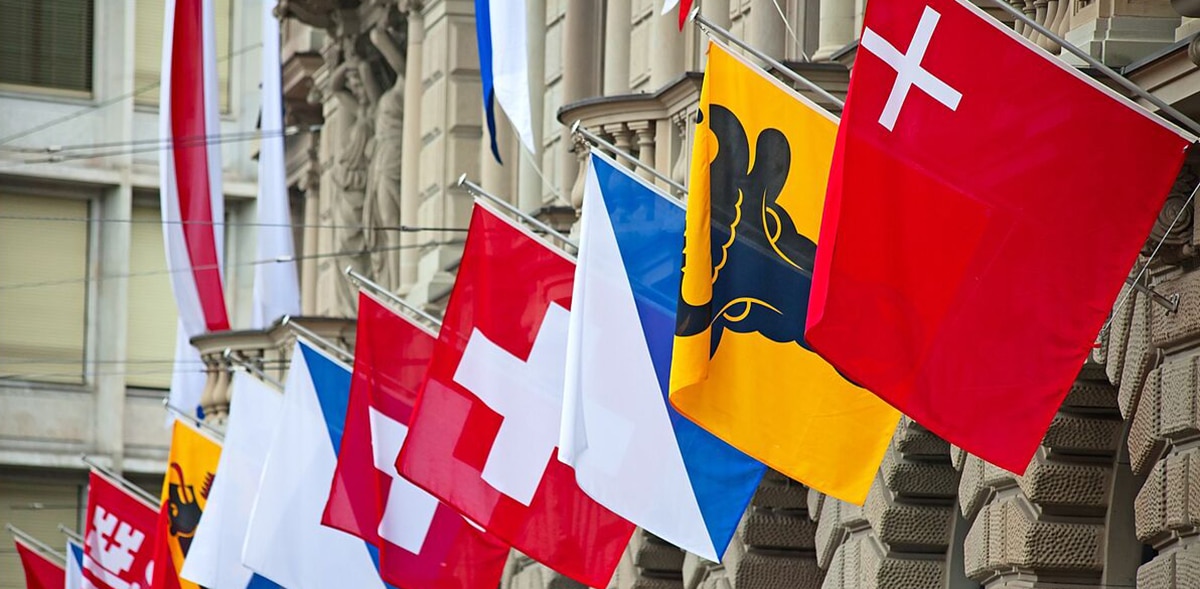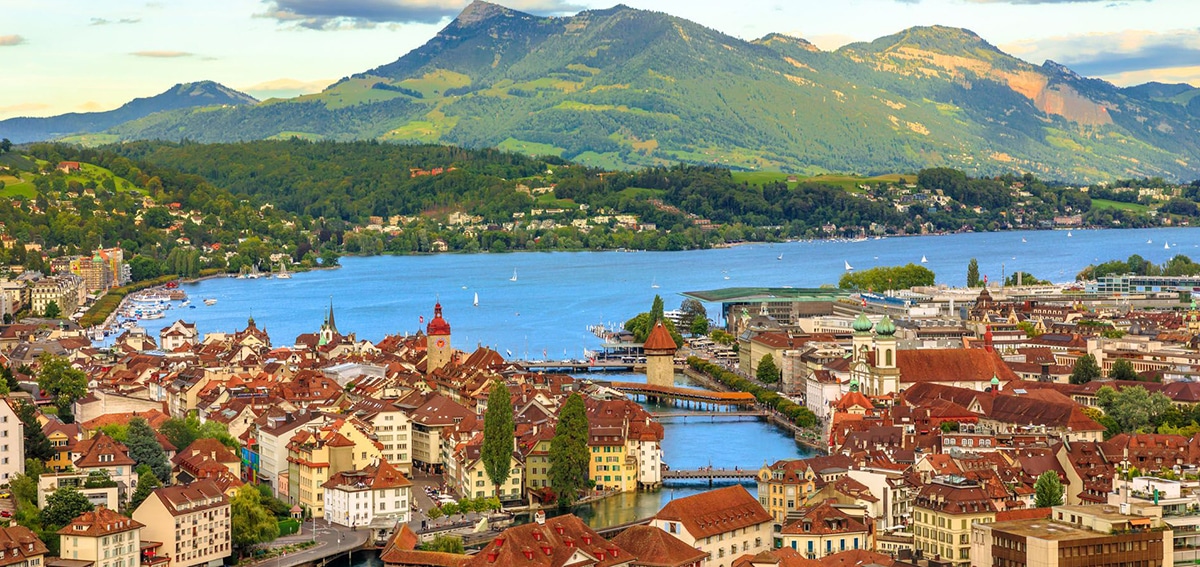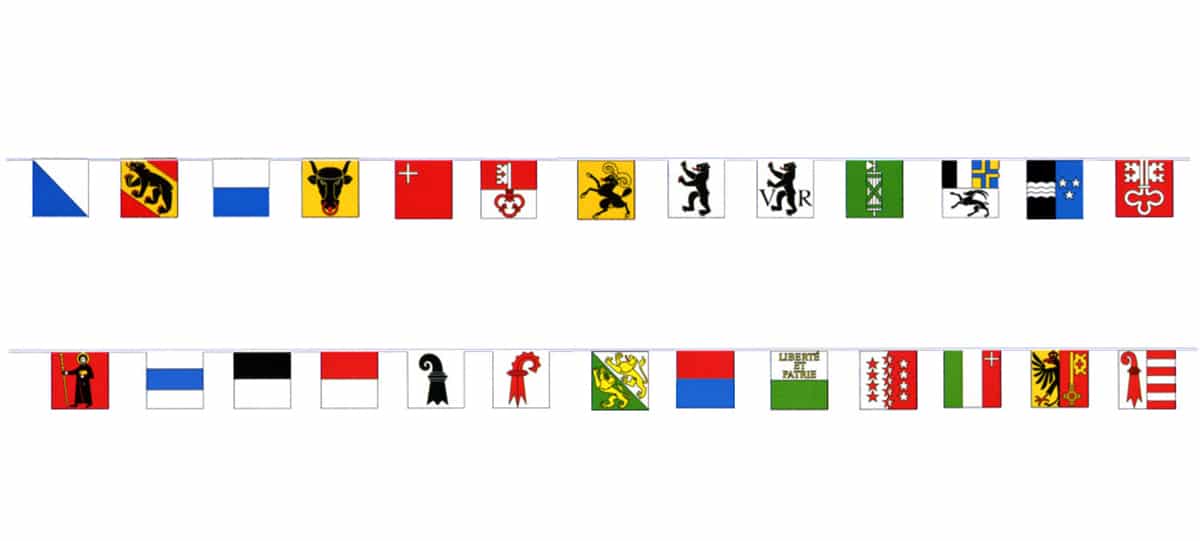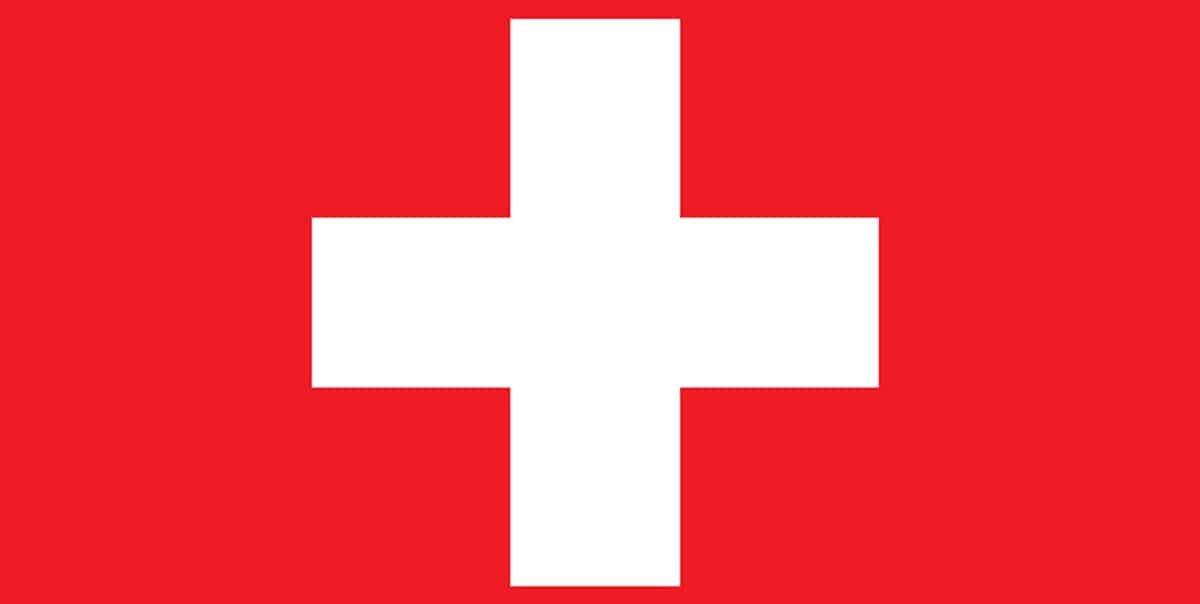
La Swiss Confederation, Switzerland, is a country in Europe bordered by Italy, Germany, Austria, Liechtenstein and France. Its origins go back to an old political confederation of the Middle Ages formed between the years between 1300 and 1500.
geopolitically it is divided into cantons, today 26, so today we will talk about them: the cantons of Switzerland.
Cantons of Switzerland

As we said above the current formation of Switzerland dates back to the Middle Ages. Between 1300 and 1300 the Old Swiss Confederation existed there, within the Holy Roman Empire.
It had been formed during the XNUMXth century, in the central area of the current country, and included Zürich and Bern. The union between urban and rural communes of the valleys of the central zone of the Alps, united by common commercial interests, was not the strongest, but still managed to enjoy a political and constitutional status similar to that of imperial cities or secular principalities, free from the authority of the local lords, being under the direct authority of the Holy Roman Emperor.
Originally there were eight cantons nothing more and they did very well for a century. Through the Burgundian War, between 1474 and 1477, a conflict between the confederation, its allies and the dukes of Burgundy, its power was established within a terrain largely dominated by the Habsburgs and France. This victory, but also adding more cantons to thirteen and declaring itself neutral in the 30 Years' War, did much to strengthen old Switzerland.

Although it was de facto independent, It was only in 1648 that it officially became independent from the Holy Roman Empire., at the end of that long war and the signing of the Treaty of Westphalia. The new version of the Swiss Federation divided the cantons into Catholic and Reformed, which led to many internal conflicts that extended during the XNUMXth and XNUMXth centuries. In addition to religious differences, there was also a disparity in growth and economic well-being between the cantons.
As usual: Catholic cantons were predominantly rural and surrounded by Protestant, trade-oriented cantons. The most powerful cantons were Zürich and Bern, Protestants. Since the problems were not solved there were internal wars but reforming everything was impossible, due to conflicting interests. had to wait for 1848, within the framework of the so-called Revolutions of '48, so that the Swiss federal state was born.
But where does the name Switzerland come from? In principle, from Switzerland English, but you have to know that during those distant years the confederation knew it as Eidgenossenschaft. Later, the territories of the confederation began to be known collectively as Schweizerland or Schwytzerland. The English word Switzerland began to circulate in the mid-XNUMXth century.

For its part, the word "canton" has its roots in 1848th century French, and meant something like corner or edge. The word began to appear frequently in French, Italian and English documents, and by XNUMX the German word Canton was officially maintained.
And what is the situation today in the cantons of Switzerland? The constitution states that each canton is sovereign, but that sovereignty cannot be beyond federal law. The Confederation reserves the power of the armed forces, the currency, the postal and telecommunications service, migration and immigration, the right of asylum and international relations, civil and criminal law, and customs.
Each of the cantons has its own constitution, its court, police, executive and legislative power, although they all follow a general system. All the powers and competences that the Confederation does not claim are the responsibility of the cantons. So, each one deals with the public health service, education and taxes, For example. In addition, each one establishes its own official language and can close deals with other cantons and also with states outside the confederation.

The cantons that we surely know the most are Zürich, Bern, Lucerne, Freiburg, Basel, St. Gallen, Ticino, Neuchâtel, Geneva and Jura. Six of the 26 cantons that make up the confederation are known as semi cantons, Basel or Zürich are two of them, for example, while the remaining 20 are known as complete cantons.
This distinction serves to mark the historical association of those six semi-cantons with each other, but since 1848 all the cantons are equal in everything, except that the semi-cantons only elect one member in the Council of States, and in the case of having a popular referendum their vote counts for half of the other cantons.

We finally know that Three languages are spoken in Switzerland: French, German and Italian.. For example, German is spoken in Basel, Appensell, Aargau, St. Gallen or Zurich. French is official in Bern, Freiburg, Geneva, Neuchâtel or Valais and Italian is in Ticino and Graubünden. Clear, in some cantons there is more than one official language, as is the case of Bern, Freiburg or Geneva where he speaks German and French equally.
I leave you some more information:
- lémanique region: is the part of Switzerland where French is spoken as well as German. There are Valais and Geneva, headquarters of the United Nations and the Red Cross. For its part, Valais is one of the most beautiful cantons, with the Matterhorn and other very high mountains, more than 4 thousand meters high.
- northwestern switzerland: Basel-Landschaft, Basel-Stadt and Aargau are the three cantons in this part of the country. Basel It is the cultural capital of Switzerland, with more than 40 museums and a charming old town. The area abounds in medieval castles and nature, ideal for outdoor activities.
- eastern switzerland: There are seven cantons here and many are very mountainous, such as Glaurus, Appenzell Ausserrhoden and Appensell Innerhoden, Sankt Gallen and Thurgau. All have German as their official language, but the canton of Graubünden recognizes three official languages: German, Italian, and Romanesque.
- Mitteland: here it is Bern, with its great museums. There is also the canton of Solothurn, Jura, Friborg, Neuchâtel…
- central switzerland:This is where Lucerne is with its beautiful old town and Mount Pilatus. there is also the canton Schwyz, Nidwalden, Uri, Zug and Obwalden, lakes and many forests.
- Ticino: It is the southernmost canton and is the only one in the entire confederation in which Italian is officially spoken. It enjoys a pleasant Mediterranean climate, rests on the edge of Lake Maggiore and is a very particular part of the country.